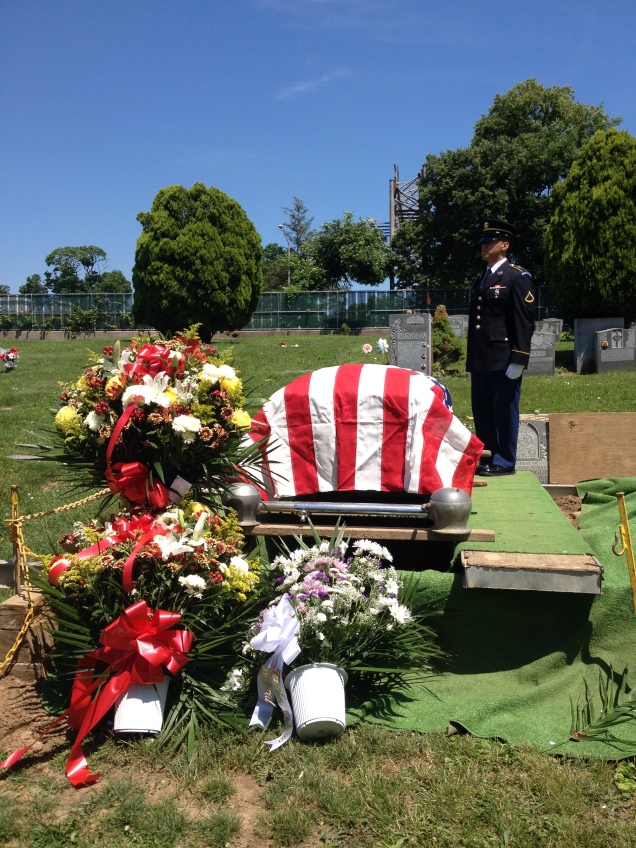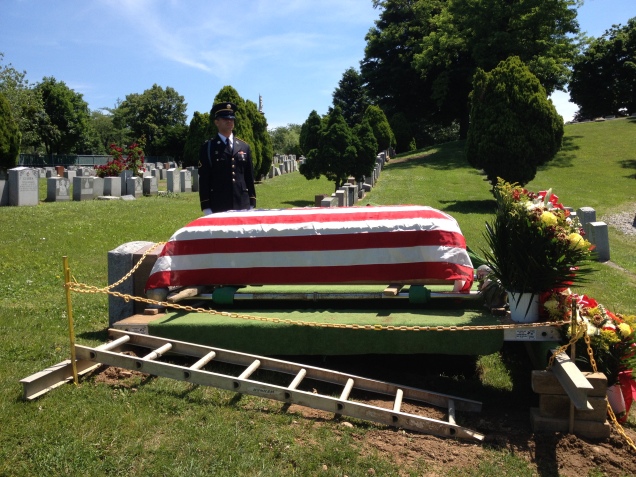An Interview that Never Happened
The following is an interview that never took place. The questions I tackle are from Nicholas Kristof’s NY Times article where he aimed them at former President Jimmy Carter. That interview was conducted by email for publishing on Easter Sunday, 2017 (https://www.nytimes.com/2017/04/15/opinion/sunday/president-carter-am-i-a-christian.html?smprod=nytcore-ipad&smid=nytcore-ipad-share). I thought it interesting to aim those questions at myself as a mental and spiritual exercise. Here are my responses.
N.K.: How literally do you take the Bible, including miracles like the Resurrection?
Mr.V: I see two questions here. First, do I take the Bible as a literal text? I do not. I don’t believe the writing of the books of the Bible were the authors’ eye-witness accounts. Instead, I believe the Bible is a compilation of myths that were verbally passed down through the generations, ultimately written down by people who did not witness the events they witnessed (or in a few instances, recorded many years after the events the author witnessed). I also implied, and believe, that the there were multiple contributors to the Bible (Hebrew Bible/ Old Testament or New Testament).
My use of the word ‘myth’ does not imply that I believe these events were fantasy. Instead, the recorded story is important because it’s laden with cultural value added over the centuries since the story’s origin. I can’t help but believe that an event sparked the story’s birth and energized it’s longevity. That event must have been great, indeed.
The second question is Do I believe the ‘Resurrection’ occurred? I can’t subscribe to the view that the accounts of the death and resurrection of Jesus occurred as written. I believe Jesus existed and was the messenger of GOD. However, I believe that his death and resurrection was an intervention by GOD that accomplished the same goal as the resurrection (conquest over physical death by a spiritual birth), but not how it occurred in the New Testament accounts.
N.K.: With Easter approaching, let me push you on the Resurrection. If you heard a report today from the Middle East of a man brought back to life after an execution, I doubt you’d believe it even if there were eyewitnesses. So why believe ancient accounts written years after the events?
Mr.V: I believe my previous response partially answers this question. However, let me expand the question to one that includes the writing of all the ancients.
Ancient societies, since the advent of writing, have had a control over the recording of data. The skill to write was reserved to elites within the society and employed by the ruling entity for their self-preservation and perpetuation. That tendency hasn’t disappeared today, but it’s easier to reveal ulterior motives today that stretch beyond the quest to record the ‘truth’. My students like to place the ‘ancients’ on a lower rung of the civilized latter because they’re ‘ancients’. I try to open their minds a bit and convince them that even the ‘ancients’ deserve the benefit of the doubt when we have nebulous alternatives. So, the Bible’s accounts should not be generally tossed onto a pile of fantastic tales without extending the courtesy that all claims SHOULD receive in an open, logical, mind.
Religion is a personal exercise in faith. I will not judge the religious experience of another and expect the same courtesy extended to me. Only when I’m asked, as you ‘sought-of’ did, will I explain the foundation of my experiences and beliefs. But, my experience should not be accepted as the experience and faith of another.
N.K.: What about someone like me whose faith is in the Sermon on the Mount, who aspires to follow Jesus’ teachings, but is skeptical that he was born of a virgin, walked on water, multiplied loaves and fishes or had a physical resurrection? Am I a Christian,…?
Mr.V: I believe strongly that the ideas we publicize as ‘religion’ is the product of humanity. I prefer to use the word ‘faith’ to represent the foundation of one’s views about the supernatural, and that, as expressed earlier is a personal experience. If a particular story is identified with a particular storyteller, there is a historical tendency to name the believers of the story’s facts by the name of the storyteller. Christianity (Jesus Christ), Buddhism (The Buddha), Confucianism (Confucius), and even Islam (for a long period referred to as Mohammadism by Western writers) reflect this tendency. In Jesus’ case, his parables were often new versions of older myths (e.g.: The Golden Rule). His rendition may sound convincing to me, but I would probably not be identified by the name of the earlier author. Also, the more time elapses from the moment when the person and story originated, the greater the likelihood that the story is ‘hijacked’ by others to push their agenda. This is the problem I have with your question. Therefore, the term ‘Christian’ is an inaccurate term to use, especially if you consider the number of sects within modern Christianity.
If your interpretation of Jesus’ teachings are convincing to you and adequately handles the contradictions that often arise in religious writings, then you can refer to yourself any way you wish. It’s your exercise of the tenets you extracted from the teachings that identify you, not how someone else interprets your experience. This view is not accepted by organized religions. The entire premise of having organized religion is to standardize the interpretation and experience of the devout. I don’t subscribe to that.
In closing, this push-pull between dogma and ‘personal’/ ‘intimate’ experiences was at the center of major rifts in religious history: The Protestant Reformation and Sufism are two examples from the Christian and Islamic experiences.
N.K.: How can I reconcile my admiration for the message of Jesus, all about inclusion, with a church history that is often about exclusion?
Mr.V: Here, I return to my statement on organized religion vs. personal experience. History reveals a long trail of organized religion serving the needs of a special interest over the needs of the masses.
N.K.: Do you sometimes struggle with doubts about faith?
Mr.V: My experience tends to place the blame on me, and not on the faith. I occupy such a small portion of the human timeline, that certain ‘truths’ passed along to me by the ‘ancients’ are beyond reproach. Therefore, any crisis of faith is more of a failure on my part to properly interpret and incorporate the ‘truth’ into my condition. You can see, again, my tendency to give the ‘ancients’ the benefit of the doubt regarding certain matters of the human condition. I can’t believe that the struggles I wrestle with never happened to another human. It must have plagued others in the past- multiple times. When I read about ancient Greek, Hindu, or Hebrew texts, you see that common problems of today were also common then. The ‘ancients’ dealt with many of these issues and probably addressed them long before we ever showed up. That wisdom still resides in these ‘myths’. How we extract those kernels of knowledge often involves our interpretation (and we loop back to my views of faith as being a personal experience).
N.K.: I think of you as an evangelical, but evangelicalism implies belief in inerrancy of Scripture. Do you share that, and if so, how do you account for contradictions within the Gospels?
Mr.V: I do not classify myself as an evangelical and everything I’ve written would classify me, by others, as something OTHER THAN an evangelical. I reiterate, as it concerns this question, that scripture is written by Men and as such prone to the literary obstacles that would generate. Therefore, scripture cannot be absent of error, since Men, who wrote the scriptures, are NOT exempt from error (Note: this sounded a great deal like an exchange between Capt. Kirk and NOMAD in the episode titled “The Changeling”).
The contradictions are not difficult to explain when you consider that the Bible (both the Hebrew Bible and the New Testament) were not compiled into it’s final form by the same individuals who wrote the books contained within. These books (scriptures) were not included by the compilers of the Bible as you might expect an author of a book to organize the chapters of the book they just wrote. In this latter example, the author organizing the final form of his book also wrote the chapters of the book. That’s not what happened with the Bible.
N.K.: One of my problems with evangelicalism is that it normally argues that one can be saved only through a personal relationship with Jesus, which seems to consign Gandhi to hell. Do you believe that?
Mr.V: The key word is ‘personal’. Gandhi being condemned to Hell is not for me to decide or change one way or another. My measure of Gandhi as a person can only be determined by the criterial I apply to myself IN THIS LIFE. His afterlife is out of my hands and solely in his and GOD’s.
If your question is attempting to extract from me a denunciation of Gandhi because he has a different faith than I, I will not satisfy you. Everything I’ve written thus far extends to Gandhi as it does to me. GOD is an limitless entity and beyond my ability to package into an easily conceivable form. My experience with the divine is colored, shaped, or influenced by my condition/ context; as it is for all. If Gandhi experiences GOD in a form different than I do, his experience is NOT any less/ more valid than mine.
N.K.: Do you pray daily, and if so, do you believe in the efficacy of prayer in a miracle kind of way, or in a psychologically-this-helps-me-deal-with-the-world kind of way?
Mr.V: Yes, I pray/ speak with GOD daily. I ask for certain things and sometimes never receive it. However, I don’t see prayer as solely a hotline for my desires. I often speak with GOD just to offer thanks for some of the daily occurrences I don’t want to take for granted. I want GOD to know me more for the “Thank you for…” than the “Can I have…”. This helps me psychologically handle daily challenges, but it acknowledges that I cannot forget my impending afterlife- ‘Thank you’ may earn me mercy in the afterlife as it earns me appreciation in this life.
N.K.: Skeptics have noted that when prayers are “answered,” there is usually an alternative explanation. But an amputee can pray for a new leg, and a new leg never grows back. Isn’t that a reason to believe that prayer helps internally, but doesn’t access miracles?
Mr.V: I don’t expect miracles, but I’m thankful when they happen. I have no control over it and thus don’t want to place the burden on prayer to spawn them. I don’t believe that GOD “is a watchmaker in the sky tinkering” with humanity. His involvement is beyond my control and contradictory to my understanding of ‘Free Will’ if he did intervene routinely.

